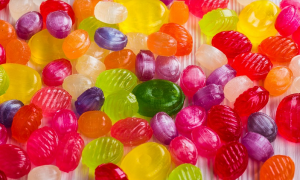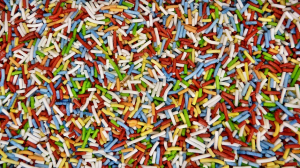
Nutritional Yeast for Little Ones: A Breakdown
Hey there, fellow parents! You’re probably wondering if your little ones can enjoy the nutritional goodness of nutritional yeast. It’s a popular ingredient in many adult dishes, but is it safe and suitable for babies?
Nutritional yeast is often hailed as a superfood thanks to its impressive nutrient profile. It’s packed with B vitamins like riboflavin (B2) and niacin (B3), both crucial for energy production, along with trace minerals such as zinc and selenium. Beyond those essential nutrients, nutritional yeast offers other benefits, including a nutty flavor that adds complexity to savory dishes. However, before introducing this powerhouse ingredient into your baby’s diet, it’s important to understand the safety considerations.
Let’s dive deeper into the world of nutritional yeast and its potential role in your baby’s growth.
Nutritional Yeast Safety for Babies
First things first: The American Academy of Pediatrics (AAP) recommends a healthy, diverse diet for babies. This includes whole foods, including vegetables, fruits, and grains, along with dairy or plant-based alternatives. While nutritional yeast is nutrient-rich, it’s crucial to prioritize safe and age-appropriate food choices for young infants.
**Introducing Solid Foods:** At around 6 months of age, many babies start exploring solid foods. Nutritional yeast can be incorporated into baby meals as they transition towards a more diverse diet, but there are specific considerations:
* **Gradual Introduction:** Start with very small amounts of nutritional yeast in your baby’s food to monitor for any potential allergies or sensitivities. A tiny sprinkle on top of their mashed avocado or pureed sweet potato could help introduce the cheesy taste without overwhelming them. * **Limited Serving Size:** Keep portions small and manageable. Babies have limited stomachs at this stage, so frequent feedings and smaller portion sizes will be essential to avoid any digestive distress. * **Moderation is Key:** As with all new ingredients for babies, moderation is important. Nutritional yeast should never replace the standard nutritional needs of your baby’s diet. * **Always Consult a Pediatrician:** Speak to your pediatrician before introducing any new food into your baby’s routine, especially if you have concerns about allergies or sensitivities.
**Beyond Baby Food: For Older Infants:** Once your baby is past the stage of purees and starting to explore more diverse textures, nutritional yeast can be included in their meals as they start experimenting with flavors and textures:
* **Flavor Enhancer:** Nutritional yeast has a cheesy flavor that can add complexity to savory dishes, making them more enticing for infants. * **Adding Texture:** Sprinkle some on top of soups or stews to introduce a new texture dimension to their meals.
**Always Choose High-Quality Products:** Make sure the nutritional yeast you choose is certified organic and free from any additives or preservatives, ensuring its natural goodness makes it safe for your little one.
Potential Benefits of Nutritional Yeast and Safety
Nutritional yeast brings a plethora of benefits to the table – beyond just being a source of B vitamins. This unique ingredient has been hailed as a nutritional power house:
* **Boosting Immunity:** B Vitamins in nutritional yeast are essential for immune system development and function, supporting your baby’s natural defense mechanisms against various illnesses.
* **Promoting Brain Development:** The B vitamins present in nutritional yeast play a crucial role in brain development, contributing to healthy cognitive functions. This promotes their overall well-being and learning ability.
However, it is essential to emphasize that the benefits of nutritional yeast are most profound when incorporated into a balanced diet rich in whole, nutritious foods.
* **Gluten-Free Option:** For babies with gluten sensitivities, nutritional yeast can be an excellent source of flavor and nutrients without compromising their dietary needs.
**When to Seek Medical Advice:** Despite the potential benefits, it’s crucial to consult with your pediatrician before introducing any new food into your baby’s diet. They can guide you based on your baby’s individual needs, allergies, and sensitivities.
Remember, feeding your child a healthy, balanced diet is paramount. Nutritional yeast can be a beneficial addition to their meals once they reach a stage where safe introduction of solid foods is possible. Always prioritize age-appropriate food choices and consult with your pediatrician for personalized guidance.
Final Notes on Nutritional Yeast for Babies
Nutritional yeast offers numerous benefits, but only when it’s introduced safely to your baby’s diet in moderation. Don’t be afraid to experiment; find what works best for your little one and their specific needs.
Remember that a balanced diet rich in whole foods is the cornerstone of healthy development for babies. Nutritional yeast can be a useful ingredient, but never at the expense of your baby’s nutritional foundations.
Let’s continue this conversation! What are your thoughts on introducing nutritional yeast to your little ones? Share your experiences and questions in the comments below.


